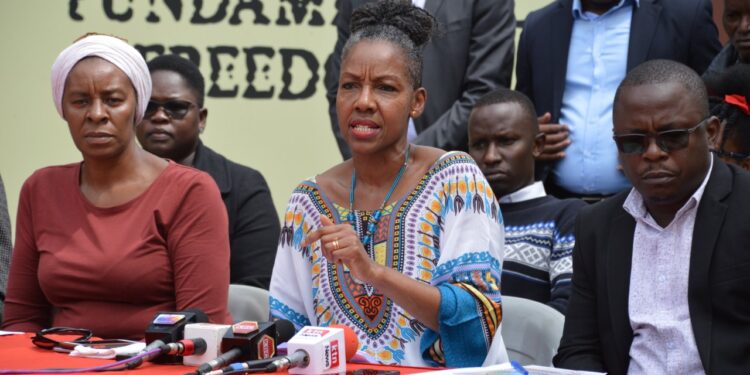Government agencies and independent commissions in Kenya have been asked to bar persons who do not meet integrity standards from running for public office during the General Election slated for August 2022.
Political parties were also asked to strive to pick candidates whose names have not been associated with ethical issues and corruption-related scandals during the nominations that are coming up in April.
“It would be unfair for citizens to be duped into electing leaders who have not only previously failed to effectively manage public resources under their care but also failed the integrity test,” The Angaza Movement, in partnership with citizens and other grassroots organisations, said during a press conference in Nairobi.
The consortium, which includes the Kenya Human Rights Commission (KHRC), the International Commission of Jurists-Kenya, Haki Yetu, and Inuka Kenya Ni Sisi, expressed concern about the question of integrity and called for intensified efforts to ensure that only the names of candidates of upright character find their way to the ballot in party primaries and the elections.
They asked government agencies responsible for enforcing the necessary laws to do their job diligently. They named the agencies as the Independence Electoral and Boundaries Commission (IEBC), the office of the Director of Criminal Investigations, the Ethics and Anti-Corruption Commission (EACC), the Office of the Director of Public Prosecutions, and the Ombudsman, and urged them to “…take necessary action within their mandate to ensure that candidates with unresolved integrity issues are barred from vying in the forthcoming elections”.
“Kenyans are being denied the opportunity to weed out corrupt leaders and choose the best. Our institutions are sabotaging the process and refusing to crack the whip on corrupt leaders,” the CSOs complained.
Angaza asked Kenyans to effectively utilise their public participation mandate to elect principled leaders in order to ensure prudent management of public resources and good governance.
“Good leaders make good governance decisions, make a prosperous country,” said Wanjiku Gikonyo, the National Coordinator at The Institute for Social Accountability.
She added that her organisation was ready to join forces with other relevant formations, such as The Red Card Campaign, to name leaders who do not meet the standards and, thereby, push for accountability in leadership.
Prompted by the August 2017 elections, The Red Card Campaign was initiated in Kenya in 2018 by Transparency International Kenya, Society for International Development/Chapter One Kenya, Mzalendo Trust, and Ni Sisi Trust to challenge the re-election of leaders who had fallen short of ethical standards, as required in Chapter Six of the Kenyan Constitution. It worked under the auspices of the National Integrity Alliance (NIA).
The campaign adopted a “speaking truth to power” approach by publicly naming powerful names in Kenya’s political class. It listed 20 individuals as unfit to vie for public office based on the law on leadership and integrity.
It engaged the leaders of political parties to deny nomination certificates to aspirants with a track record of misuse of public finances and resources. The NIA also pressed the IEBC not to clear such aspirants. After meeting with the EACC, the commission released a list of 106 individuals who it said should not be allowed to run for office. The 20 names on the #RedCard20 list were included in the EACC list.
The “Red Card” was independently used by citizens in public rallies to challenge candidates on their integrity record. The IEBC denied a gubernatorial candidate in Mombasa clearance on grounds of integrity. One political party turned down two aspirants, and eight of the “red-carded” individuals failed to win political seats.
“We are looking for leaders whose behaviour is consistent with the objectives of the constitution, people whose behaviour does not bring dishonour to the office they occupy, and who are accountable in the way they manage public affairs,” said Davis Malombe, Executive Director at KHRC, adding that hate speech and other conduct that is contrary to the principles and values of good governance should also be condemned.
He expressed concern that the IEBC was either unwilling or unable to stop unfit candidates from running for public office. “We shall take it upon ourselves to go to court and we shall also name and shame them,” Malombe said.







